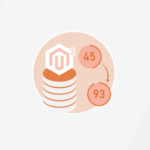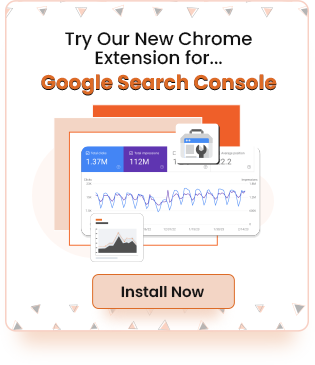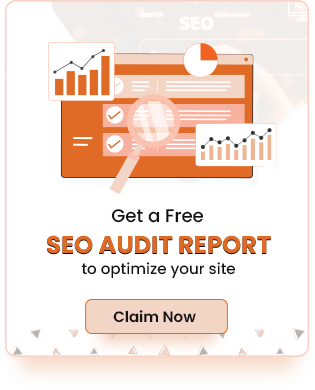10 Best SEO Tips for WordPress to Improve Organic Visibility

FREE SEO Audit Report (100% Manual)
We will run 60+ SEO checks on your website & prepare a detailed report for FREE.
Looking for the best WordPress SEO tips in 2024? You’re at the right place then! In this post, you’ll find the best SEO practices for WordPress sites.
WordPress is undeniably the most popular content management system. It is used by over 38 million sites!
The platform is open-source, easy to use, and search engine-friendly.
Yet just launching your site on WordPress is likely to get you any organic traffic. You must follow the SEO guidelines and optimize your site to make it to the #1 page of the search engine. Search engine optimization is an umbrella term, which consists of on-page, off-page, and technical aspects.
To help you with WordPress SEO optimization, I am sharing the best SEO tips for WordPress websites to increase organic visibility in 2024 & beyond!
Table of Contents
- What is Search Engine Optimization?
- Why Do You Need WordPress SEO?
- 10 Best SEO Tips for WordPress Websites
- Best WordPress SEO Tips: Summary
What is Search Engine Optimization?
Search Engine Optimization (SEO) is the process of making your website rank higher on search engines. The main aim is to increase organic traffic (get more users from search engines) to the website.
For example, let’s say you create a WordPress site related to Bonsai plants. You may want the website to appear on search engines for people searching for “What is Bonsai?” This process of making a website appear on search results for certain queries/keywords is called search engine optimization.
SEO is not a trick or any unethical practice; it is the strategy to make search engines understand your website and its authority in the niche.
In this blog post, you’ll some of the best actionable WordPress SEO optimization tips.
Why Do You Need WordPress SEO?
No SEO means you’ll receive zero to little traffic on your website. This can leave your website with little opportunity to get more online exposure.
Optimizing your WordPress site for search engines can help you:
- Get more organic traffic on your website.
- Build authority in your industry by reaching more people.
- Increase brand awareness.
- Generate more leads for your business at a low cost.
- Make more profits out of your marketing budget.
10 Best SEO Tips for WordPress Websites
Here are the best WordPress SEO tips you can use to increase SEO in 2024.
1. Optimize Images
Adding images to the web pages is a great way to engage users. The visual content can also help rank well on search engines if optimized properly. In the opposite case, they can slow down the page, and negatively affect the SEO.
Image optimization in WordPress can help fix these speed issues. Furthermore, optimizing images with proper alt attributes and names can help your site appear in image searches.
Best SEO tips for WordPress image optimization:
- Compress images to optimum size before uploading. Useful tools: TinyPNG & ShortPixel.
- Use WordPress’ in-built feature to resize the uploaded images to different sizes.
- Use a content delivery network for faster delivery of images.
- Keep meaningful names of images, for example, keep it Tiny Mango Bonsai.jpg instead of IMG-2023-05-24.jpg.
- Write descriptive alt tags for all the images.
Pro tip: Image names and alt tags are excellent opportunities to include the keywords if they naturally fit in.
2. Optimize URL Structure
Search engines crawl web pages frequently to discover new content and pages.
Using optimized URLs is also important from a user-experience point of view. Look at the following two URLs for example:
- https://example.com/blog/post-20156-2023
- https://example.com/blog/wordpress-seo-tips-by-experts
Which one is self-explanatory? Of course the second one!
Besides this, optimizing the URLs of the web pages also offers you an opportunity to include primary keywords.
Thankfully, WordPress allows you to have complete control over the URL structure.
You can also optimize the permalinks of the default posts from the WordPress dashboard. To do that, go to Settings > Permalinks and select the Post name option, which is the recommended one for WordPress SEO optimization. This is one of the best SEO tips for WordPress users!
Best SEO tips for WordPress URL optimization:
By default, WordPress allows you to customize the slug of pages/posts. Here are some helpful SEO tips for optimization URLs for SEO:
- Avoid using special characters except – (dash) in URLs.
- Do not use dates or years in URLs.
- Use parent & child pages in WordPress to build content silos.
3. Add Visual Content
It is important to make sure that the web page is visually appealing to retain the users.
Let’s say you nailed SEO and ranking on the top positions for multiple keywords. The users land on a web page cluttered with hundreds of lines of text.
This can be boring for the readers. They may press the back button and jump back to the SERPs and continue their research, resulting in an increased bounce rate.
You may not want this to happen with your WordPress site!
Therefore, it is essential to add some appealing visuals to make content easily consumable. The visual elements are also perfect opportunities to cover some extra keywords 😉
Best WordPress SEO tips for visual content:
- Use relevant keywords naturally in the name tags and alt tags of the visuals.
- Distribute helpful infographics on blog posts. This can help in building natural backlinks.
4. Use Header Tags Effectively
Header tags such as H1, H2, and H3… help make the page easily skimmable for the readers.
They are also vital from the SEO point of view as they help search engines understand the structure of the content.
H1 is the main heading of the page and should be used at the beginning. The rule of thumb is to include only one H1 tag per web page. It can be same as the title tag.
Use H2, H3…. header tags according to the hierarchy of the topic and subtopics. For example, cover a topic in H2, and its subtopics in H3. This can make it a lot easier for search engines and users to understand the structure of the topic.
Best WordPress SEO tips for header tags:
- Include primary keywords in H1 and at least one other header tag.
- Cover secondary (or long-tail) keywords in header tags.
- Follow a logical hierarchy of H2, and H3… tags for better structuring.
5. Install WP Rocket Plugin
Fast websites rank better, period.
Your WordPress site should load blazing fast to pass the core web vitals. The improved loading speed of the website improves user experience, which has a positive impact on other metrics such as user engagement and conversions.
Working on page speed optimization should also be in your WordPress SEO checklist.
There can a lot of technical aspects you need to work on to optimize your WordPress loading speed. Thankfully, there is an easy way to do this using a plugin — WP Rocket.
It helps in optimizing the WordPress loading speed by compressing and queueing CSS and JavaScript code
The pricing of WP Rocket starts at $59 per year.
6. Build Topical Authority
Google is focusing on the E-E-A-T principle for ranking results.
This means pages that demonstrate experience, expertise, authority, and trustworthiness are more likely to rank higher. Building topical authority in your niche can help you rank better and improve your SEO performance.
Building topical authority is more important if you’re into the healthcare or finance niche. The reason is Google prioritizes only authoritative results for the YMYL queries.
Best WordPress SEO tips to establish topical authority:
- Regularly publish high-quality content related to your niche. Interlink related content within your WordPress site.
- On the author page, include a clear bio, mention the author’s background & experience, and add links to social media profiles.
- Build high-quality backlinks from sites within your niche.
7. Focus on Internal Linking
Note down — internal linking is the untapped goldmine of SEO opportunities.
Search engine crawlers find pages either through links or sitemaps.
Adding links to other pages on your WordPress site can help both users and crawlers discover new content. This can also boost the visibility of pages and help you establish topical authority (as discussed previously.)
The plugin suggests internal links based on the matching terms on the page. Remember, it is also wise to consider the usefulness and relevancy of the pages while internal linking.
Best SEO tips for WordPress internal linking:
- Interlink pages by including relevant keywords in the anchor texts.
- Do not ever use a ‘no follow’ tag for internal links. This can negatively affect your WordPress SEO.
- Keep user experience and relevancy in mind while interlinking.
8. Publish High-Quality Content
High-quality content never goes out of fashion for WordPress SEO.
Google loves content that is original, unique and explores new angles. It has become more important for WordPress SEO to focus on building high-value content assets in the post-ChatGPT era.
There is no secret sauce to writing successful content pieces; all you need to do is deliver value. Identify your target audience, perform keyword research, understand what your audience wants, and build genuinely helpful content around the keywords.
Keyword research helps you to find out what the audience wants. But remember merely stuffing the keywords is less likely to make your WordPress site rank. Instead, focus on creating content that addresses the keyword intent.
You can also perform SERP research to determine the search intent by analyzing the already ranking results on a specific search term.
WordPress SEO tips for creating high-quality content:
- Focus on creating content that satisfies the search intent.
- Write in an easy-to-understand and jargon-free language.
- Provide unique perspectives to the reader.
9. Add Structured Data
Structured data makes it easy for search engines to easily understand the type of content on a web page.
Some of the common types of schema markups include FAQ Pages, How-to, Recipes, etc. You can enhance the listing of your webpage on SERPs through rich snippets by adding structured data.
In WordPress, you can utilize schema markup plugins to add structured data or do it manually by using JSON-LD Schema Generators.
Follow these steps to add schema markup to WordPress:
- Pick the preferred schema type for a web page.
- Generate the schema markup code in JSON-LD format.
- Switch to text mode in the Guttenberg editor and add the code inside the <script> tag.
This way you can make your result stand out from others on the SERPs.
10. Try Rank Math for SEO
Last but not least — you’ll need a powerful WordPress SEO plugin to implement changes. Rank Math is a preferred choice of SEO plugin for WordPress by 2 million+ users.
The free version of the tool comes with basic customization functionalities, such as editing sitemap.xml, adding metadata, schema markup, and more.
Install the plugin now and start leveling up your WordPress SEO!
& that’s a wrap for the WordPress site SEO tips by Meetanshi.
Best WordPress SEO Tips: Summary
There is a lot to do to optimize your WordPress site for SEO. In the above article, I shared the top 10 best SEO tips for WordPress websites that you can use to increase organic traffic in 2024. If you’re just getting started with WordPress SEO, there’s a lot to do — from optimizing URLs to building topical authority. Remember, search engine optimization is a never-ending process. You need to keep updating your WordPress site’s SEO to stay on top!
In case you are looking for expert help with WordPress SEO, contact us to consult our professionals! We are also offering a free SEO audit to help you find issues with your site’s SEO.

We are offering a FREE SEO Audit to help you find what’s holding you back from success. Request a FREE SEO Audit Now!








2 Comments
This is one of the best posts I’ve ready in quite a while. Nice work.
Thanks a lot, Jackie!